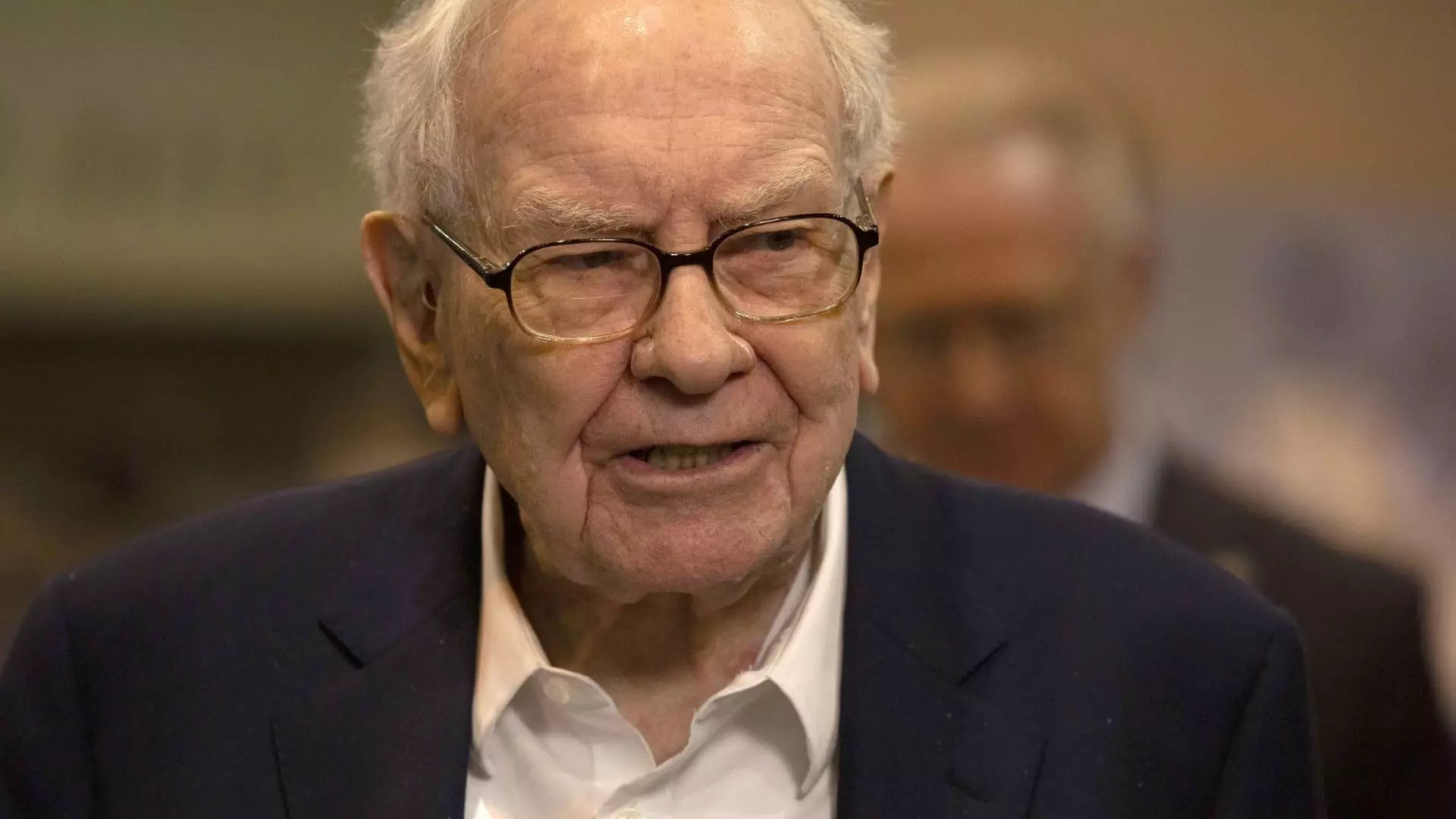Berkshire Hathaway, the investment behemoth led by the astute Warren Buffett, has found itself at the center of attention once again with its staggering cash reserves, which recently crossed the $300 billion mark. In an era where investment strategies are constantly evolving, Buffett’s cautious selling approach and his decision against share repurchase raise important questions about market dynamics and future growth strategies.
As of the end of September, Berkshire’s cash reserves expanded to a record $325.2 billion, a significant increase from $276.9 billion just three months prior. This remarkable accumulation of liquid assets showcases the company’s ability not only to weather market fluctuations but also to maintain a flexible position for future investments or acquisitions. This situation is noteworthy, especially considering the backdrop of a bullish stock market that has seen the company’s shares outperform the average gains of major indices like the S&P 500.
Buffett’s strategy of selling substantial portions of key holdings—particularly in technology firm Apple and financial giant Bank of America—suggests a shift in focus. Over the last year, Berkshire has consistently reduced its position in Apple, offloading about a quarter of its stake just in the third quarter alone. This move, combined with the divestment of more than $10 billion from Bank of America, signals a deliberate approach to cash management rather than a panic response to market volatility.
Buffett’s decision to divest $36.1 billion worth of stocks during the third quarter, without any buybacks of Berkshire shares, prompts careful consideration. Historically, Buffett has leveraged stock repurchases when he believes the market undervalues Berkshire’s shares. However, during this period, share buybacks dropped sharply, with only $345 million spent compared to $2 billion in the preceding quarters. This stark decline suggests that Buffett may be prioritizing liquidity and financial flexibility as opposed to capitalizing on perceived undervaluation.
Such a strategy begs the question: Is Buffett anticipating a market correction? Or does he possess insights into shifting economic indicators suggesting that an adjustment in strategy is prudent? The caution reflected in these moves acts as a barometer for investor sentiment, particularly when juxtaposed with the broader market trends where bullish expectations about economic growth are countered by the reality of persistent inflation and rising interest rates.
Buffett’s third-quarter earnings report revealed that operating earnings totaled $10.1 billion, a decline of approximately 6% from the previous year, a downturn attributed to a slump in insurance underwriting. This aspect of the conglomerate’s operations underscores a vulnerability that could raise concerns among investors, particularly as the quarter failed to meet analyst expectations.
As interest rates continue to hover above 4%, the financial environment remains uncertain, echoing sentiments from notable investors like Paul Tudor Jones, who point to increasing fiscal deficits and the lack of proactive stances from political leaders. In times of uncertainty, Buffett’s conservative outlook may prove prescient, adhering to the age-old investment principle of preserving capital while waiting for the right opportunities to emerge.
It is worth noting that Buffett has hinted at potential capital gains tax hikes in the near future, a notion that plays into his decision-making calculus. By selling off significant equity holdings now, he may be positioning Berkshire Hathaway to mitigate the impact of increased taxation while still maintaining a solid cash position to leverage in times of opportunity.
As Berkshire Hathaway continues to navigate the complexities of the current market while amassing unprecedented cash reserves, investment strategies rooted in caution and prudence come to the forefront. The decisions made by Buffett and his team signal not just a reaction to immediate market conditions, but an overarching strategy that balances risk with opportunity, maintaining a delicate equilibrium amidst economic uncertainties. The investment community will watch closely to see how Berkshire Hathaway utilizes its cash hoard in the future—whether for reinvestment in undervalued stocks, strategic acquisitions, or as a buffer against potential market downturns is a narrative that continues to unfold.


Leave a Reply